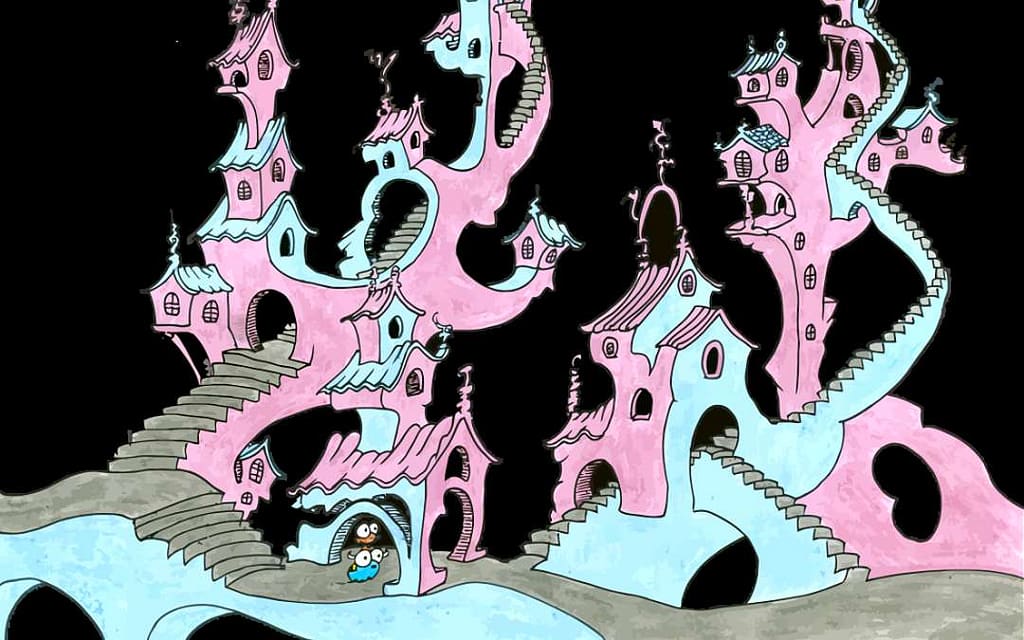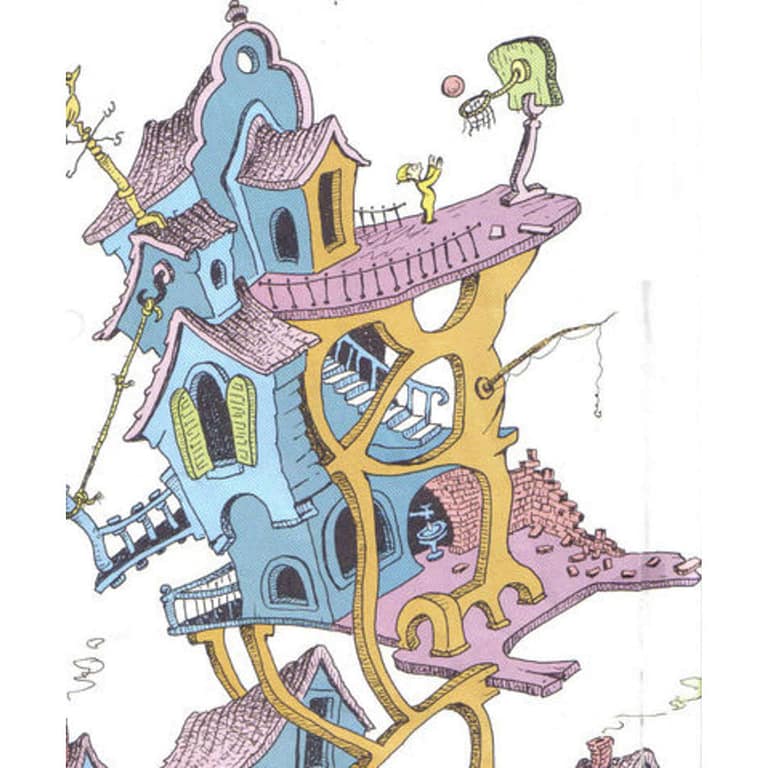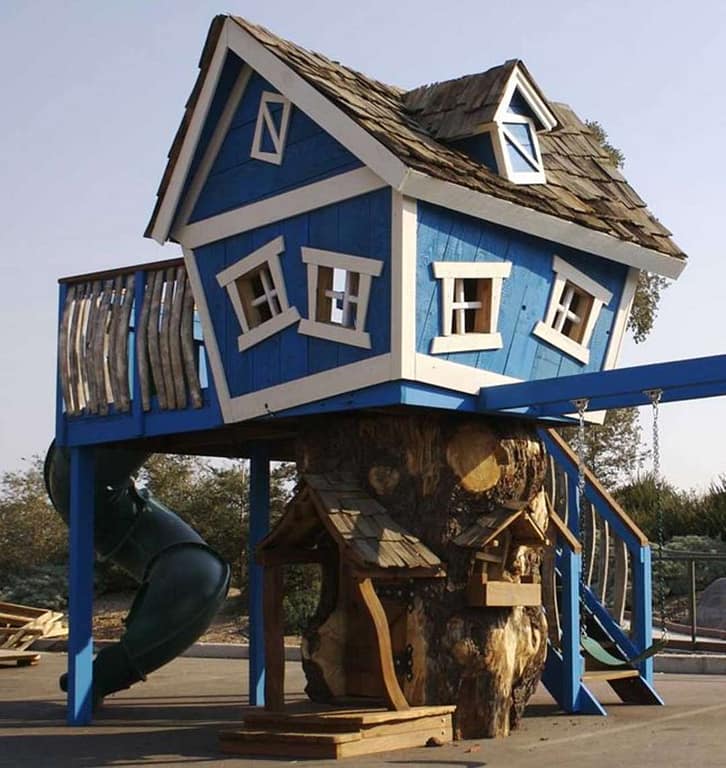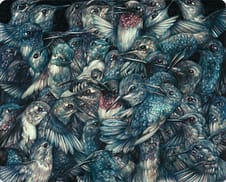The Architecture of Dr. Seuss – A Brief History
Theodor Seuss Geisel, also known as Dr. Seuss, was a prolific architectural thinker. His experimental drawings show speculative domestic architectures: houses and pueblo-like villages with oddly sloped roofs, multiple off-set levels, and wild color schemes, always looking as if they were on the verge of falling over. They were something like a cross between an overgrown victorian house and a small shanty made of tin and wood. Lebbeus Woods was probably inspired by Dr. Seuss.
Dr. Seuss, Architect. Image via seuss.wikia.com
 Dr. Seuss, Architect. Image via glogster.com
Dr. Seuss, Architect. Image via glogster.com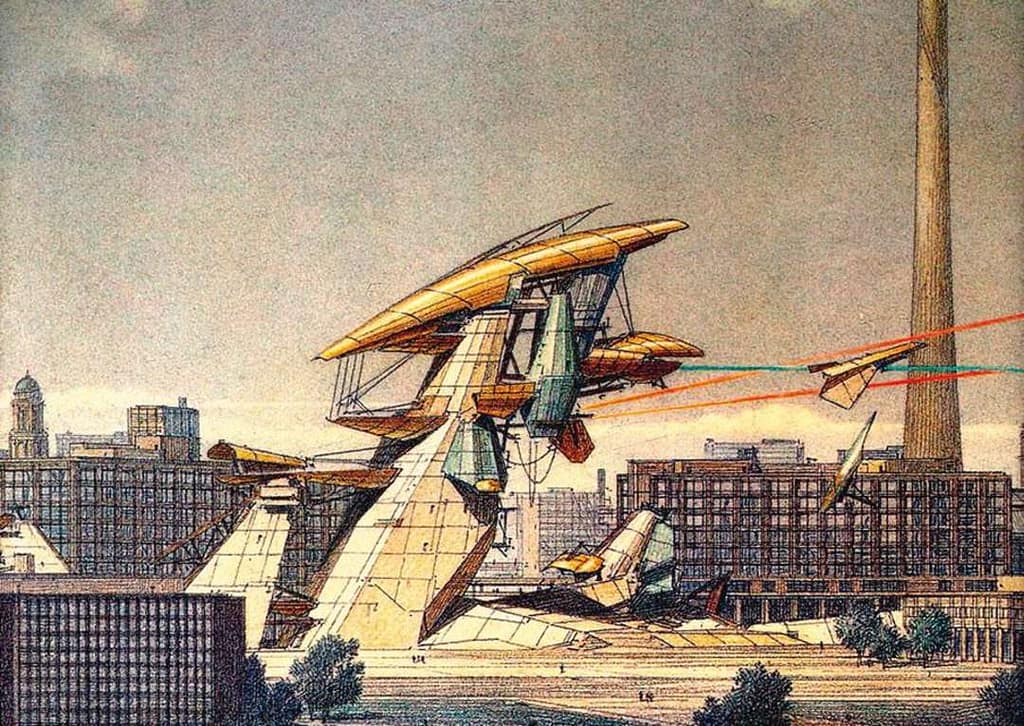
In Willow, Alaska, a now-abandoned 12-story house sits mysteriously in the middle of the wilderness outside of Anchorage. The towering wooden structure resembles a stack of houses, each smaller than the next as it climbs toward the sky. The quirky tower is as weird and wonderful as Dr. Seuss‘ unbuilt works, and the townspeople have named it Dr. Seuss House. It is on private property, but you see it by driving by or taking a helicopter tour.
 Alaska’s Dr. Seuss House. Image via Roadtrippers.
Alaska’s Dr. Seuss House. Image via Roadtrippers.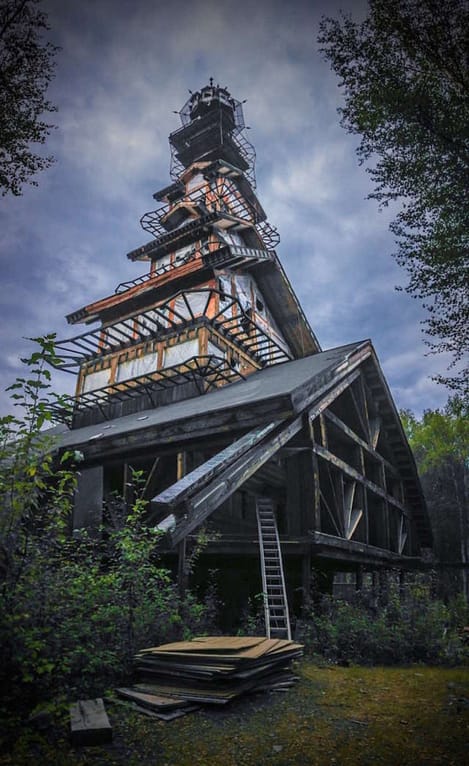
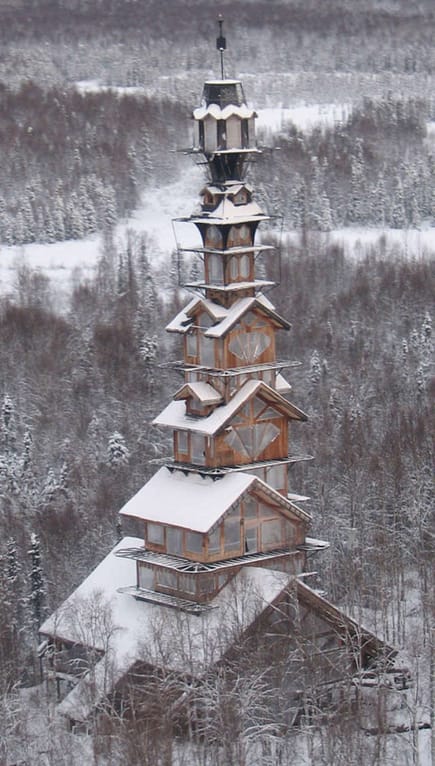
Dr. Seuss was inspired by architecture, and it is rumored that his famous Whoville is based on the Massachusetts town of Easthampton and nearby Mt. Tom. However, he also inspired many amateur designers, including many treehouse designs, from the simple to the fantastic.
In an odd turn of architectural fate, the Geisel Library at San Diego State University by William Pereira is named for Dr. Seuss. It is one of the classic 1960s American campus Brutalist treasures, with Seussian, gravity-defying concrete levels that expand outward toward the sky. The closest that architects have come to actually making the architecture Dr. Seuss might be husband and wife artist duo Arakawa and Gins.
 Geisel Library, San Diego. Image via Wikipedia Commons.
Geisel Library, San Diego. Image via Wikipedia Commons. Lofts in Mitaka, Japan by Arakawa and Gins. Image via NYTimes
Lofts in Mitaka, Japan by Arakawa and Gins. Image via NYTimes Bioscleave House by Arakawa and Gins. Image via ArtInfo
Bioscleave House by Arakawa and Gins. Image via ArtInfo
